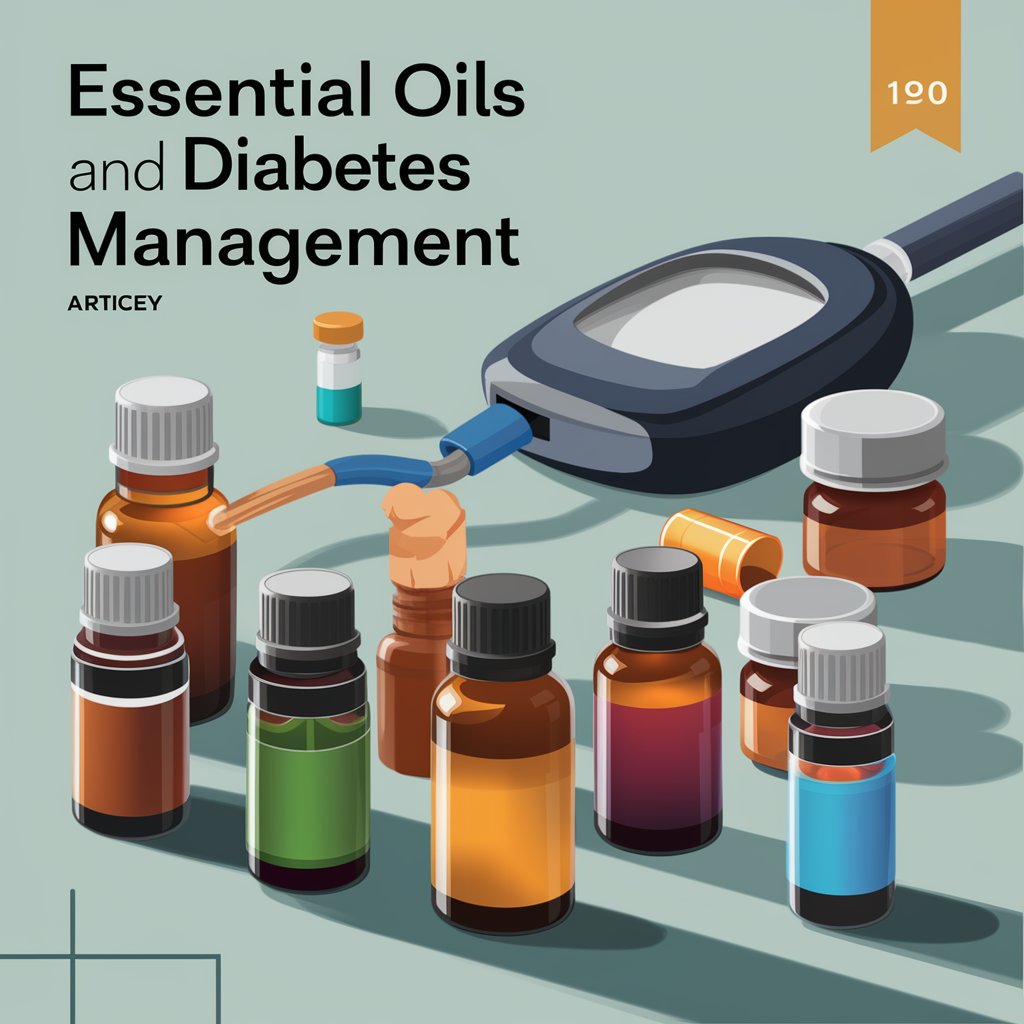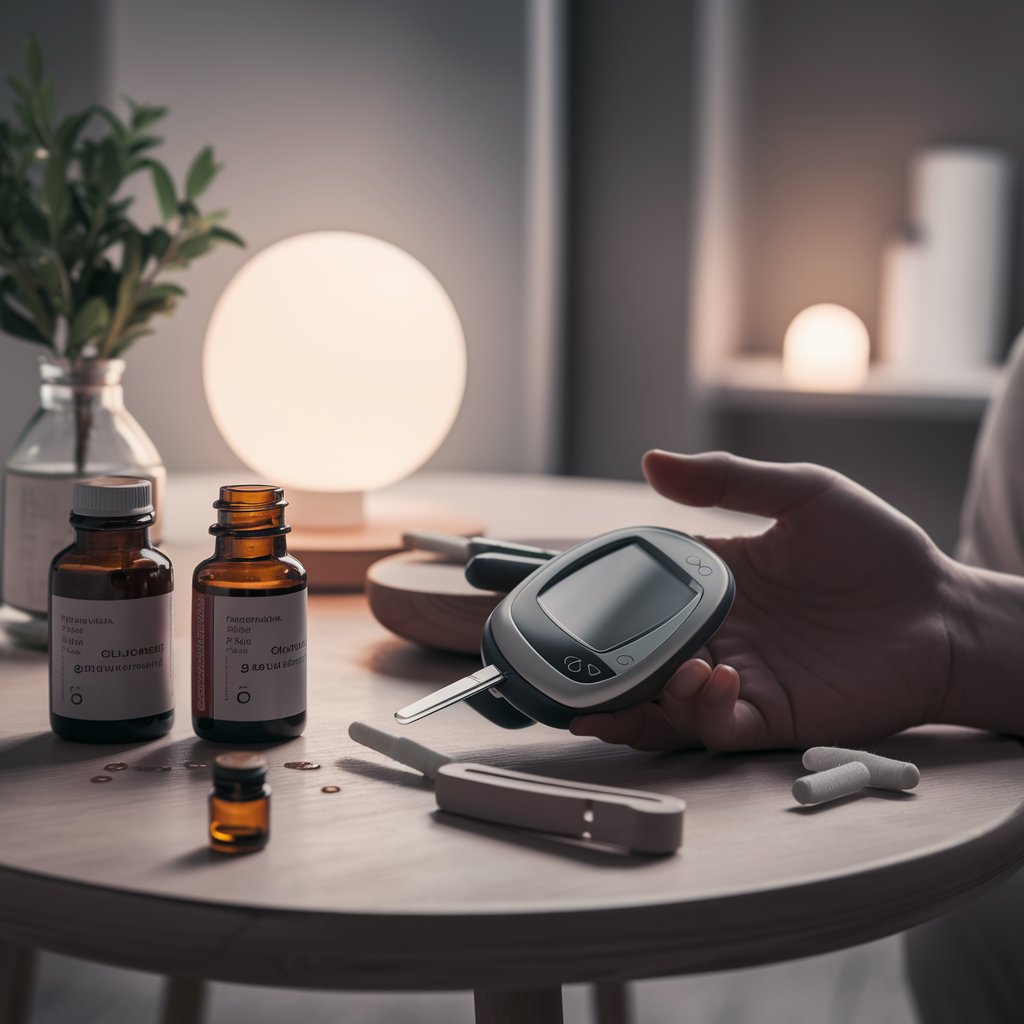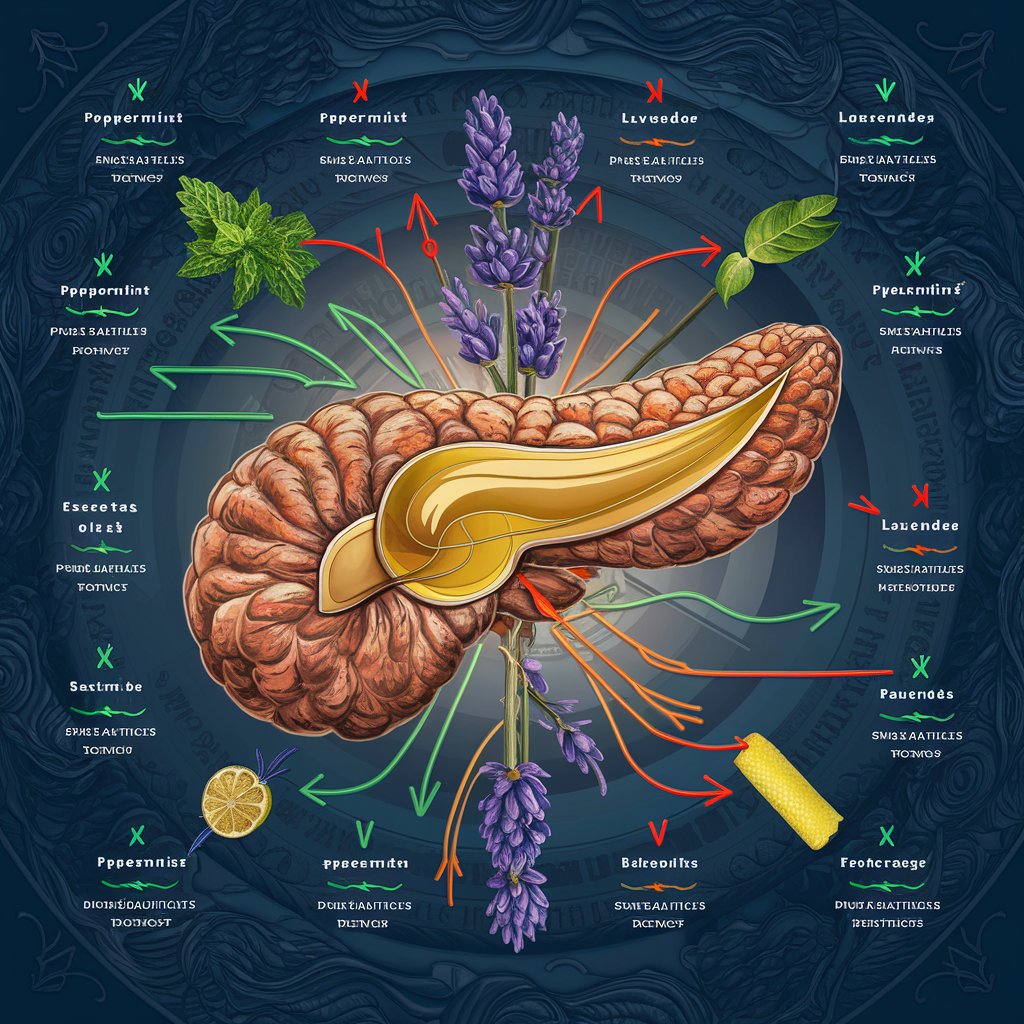Diabetes mellitus, commonly referred to as diabetes, is a chronic condition that affects how your body turns food into energy. In recent years, there has been growing interest in natural remedies, including essential oils, to help manage diabetes. Essential oils, derived from plants through distillation or cold pressing, have been used for centuries in traditional medicine. This article delves into the potential benefits, mechanisms, and safety considerations of using essential oils in diabetes management.
Understanding Diabetes
Diabetes is characterized by elevated blood glucose levels due to either insufficient insulin production (Type 1 diabetes) or the body’s ineffective use of insulin (Type 2 diabetes). Chronic hyperglycemia can lead to serious complications, including cardiovascular disease, nerve damage, kidney failure, and blindness. Managing diabetes typically involves lifestyle modifications, medication, and monitoring blood sugar levels.
The Role of Essential Oils in Diabetes Management
Potential Benefits
- Antioxidant Properties: Essential oils such as cinnamon, clove, and lemon are rich in antioxidants. Antioxidants help combat oxidative stress, a condition linked to diabetes complications. Oxidative stress occurs when there is an imbalance between free radicals and antioxidants in the body, leading to cell damage.
- Anti-inflammatory Effects: Chronic inflammation is a significant factor in the progression of diabetes and its complications. Essential oils like frankincense and myrrh have potent anti-inflammatory properties, which may help reduce inflammation and improve insulin sensitivity.
- Blood Sugar Regulation: Some essential oils have shown promise in regulating blood sugar levels. For example, cinnamon oil has been found to enhance insulin sensitivity and lower blood glucose levels. Similarly, fenugreek oil may help improve glucose tolerance.
- Improved Circulation: Diabetes often impairs blood circulation, leading to complications such as neuropathy. Essential oils like peppermint and ginger can promote better circulation, potentially alleviating some symptoms of diabetic neuropathy.

Mechanisms of Action
- Insulin Sensitivity: Essential oils may improve insulin sensitivity by modulating insulin signaling pathways. For instance, compounds in cinnamon oil mimic insulin, enhancing glucose uptake by cells.
- Anti-glycation: Glycation, the bonding of sugar molecules to proteins or lipids, is a damaging process that contributes to diabetic complications. Essential oils with anti-glycation properties, such as lavender and rose, may help mitigate these effects.
- Lipid Metabolism: Diabetes is often associated with dyslipidemia, an abnormal amount of lipids in the blood. Essential oils like grapefruit and bergamot can help regulate lipid levels, improving overall metabolic health.
| For More Info | Click Here |
| Treat Paralysis | Click Here |
Essential Oils with Potential Benefits for Diabetes
1. Cinnamon Oil
Cinnamon oil, derived from the bark of the cinnamon tree, is renowned for its blood sugar-lowering effects. Research suggests that cinnamon oil can improve insulin sensitivity, enhance glucose uptake by cells, and reduce fasting blood glucose levels. Additionally, cinnamon oil’s antioxidant properties help combat oxidative stress, protecting against diabetes-related complications.
2. Clove Oil
Clove oil is extracted from the flower buds of the clove tree and is rich in eugenol, a compound with potent antioxidant and anti-inflammatory properties. Clove oil may help lower blood sugar levels by improving insulin function and reducing inflammation.
3. Lemon Balm Oil
Lemon balm oil, known for its calming effects, also shows promise in diabetes management. Studies have found that lemon balm oil can improve glucose tolerance and reduce blood sugar levels. Its antioxidant properties further contribute to its potential benefits.
4. Frankincense Oil
Frankincense oil, derived from the resin of the Boswellia tree, has anti-inflammatory and immune-boosting properties. It may help manage diabetes by reducing inflammation and improving insulin sensitivity.
5. Peppermint Oil
Peppermint oil is known for its refreshing aroma and cooling effects. It can improve circulation and may help alleviate symptoms of diabetic neuropathy. Additionally, peppermint oil has been found to have potential benefits in regulating blood sugar levels.
6. Lavender Oil
Lavender oil is famous for its calming effects, but it also has anti-inflammatory and antioxidant properties. It may help reduce oxidative stress and inflammation, contributing to better diabetes management.
7. Ginger Oil
Ginger oil, derived from the rhizome of the ginger plant, is known for its anti-inflammatory and digestive benefits. It may help improve circulation, reduce inflammation, and regulate blood sugar levels.

How to Use Essential Oils for Diabetes Management
Aromatherapy
Aromatherapy involves inhaling the scent of essential oils, which can have various physiological effects. For diabetes management, diffusing essential oils like cinnamon, clove, and peppermint can help improve mood, reduce stress, and potentially enhance insulin sensitivity.
Topical Application
Topical application involves diluting essential oils with a carrier oil (such as coconut or jojoba oil) and applying them to the skin. This method can be useful for improving circulation and relieving symptoms of diabetic neuropathy. Essential oils like peppermint and ginger can be massaged onto the feet and legs to promote better blood flow.
Oral Consumption
Some essential oils can be taken internally, but this method requires caution and should only be done under the guidance of a healthcare professional. Essential oils like lemon and ginger can be added to food or beverages in small amounts to potentially aid in blood sugar regulation and digestion.
Safety Considerations
While essential oils offer potential benefits, they should be used with caution, especially for individuals with diabetes. Here are some safety tips:
- Dilution: Essential oils are highly concentrated and should always be diluted with a carrier oil before topical application to avoid skin irritation.
- Quality: Use high-quality, pure essential oils from reputable sources to ensure safety and effectiveness.
- Allergic Reactions: Conduct a patch test before using a new essential oil to check for any allergic reactions.
- Consultation: Always consult with a healthcare professional before incorporating essential oils into your diabetes management plan, especially if you are taking medication or have other health conditions.
- Dosage: Follow recommended dosages and avoid excessive use of essential oils to prevent adverse effects.

Table of Contents
Effects of Essential Oils on the Pancreas

1. Enhancing Insulin Secretion
Some essential oils may help stimulate the pancreas to secrete more insulin. For instance:
- Cinnamon Oil: Studies have shown that cinnamon oil can mimic insulin and increase insulin sensitivity, which can enhance glucose uptake by cells and reduce blood sugar levels. The oil contains compounds like cinnamaldehyde, which have been found to improve pancreatic beta-cell function and increase insulin secretion.
- Clove Oil: Clove oil contains eugenol, which has been found to have insulinotropic effects, meaning it can promote the secretion of insulin from pancreatic cells.
2. Reducing Inflammation
Chronic inflammation is a significant contributor to pancreatic dysfunction in diabetes. Essential oils with anti-inflammatory properties can help reduce inflammation in the pancreas:
- Frankincense Oil: Known for its potent anti-inflammatory properties, frankincense oil can help reduce inflammation in pancreatic tissue, potentially improving insulin production and function.
- Myrrh Oil: Similar to frankincense, myrrh oil has strong anti-inflammatory effects and may help protect pancreatic cells from inflammation-induced damage.
3. Antioxidant Protection
Oxidative stress can damage pancreatic cells, impairing their ability to produce insulin. Essential oils with antioxidant properties can help protect the pancreas from oxidative damage:
- Lemon Balm Oil: This oil is rich in antioxidants and can help neutralize free radicals, protecting pancreatic beta cells from oxidative stress.
- Lavender Oil: Lavender oil also has antioxidant properties that can help protect the pancreas and improve its overall function.
4. Improving Lipid Metabolism
Dyslipidemia, or abnormal lipid levels, is common in diabetes and can affect pancreatic function. Essential oils that help regulate lipid levels can support pancreatic health:
- Grapefruit Oil: This oil can help regulate lipid metabolism, potentially reducing the burden on the pancreas and improving its function in glucose regulation.
5. Supporting Regeneration
Some essential oils may support the regeneration of pancreatic cells:
- Geranium Oil: Geranium oil has been shown to have regenerative properties that may help in the repair and regeneration of pancreatic cells.
Mechanisms of Action
1. Insulin Mimetic Properties
Certain essential oils contain compounds that can mimic insulin and activate insulin receptors, improving glucose uptake and reducing blood sugar levels.
2. Modulating Insulin Signaling Pathways
Essential oils may influence various signaling pathways involved in insulin secretion and function. For example, cinnamon oil has been found to enhance the activity of insulin signaling pathways, thereby improving insulin sensitivity.
3. Anti-inflammatory and Antioxidant Actions
By reducing inflammation and oxidative stress, essential oils help protect pancreatic cells from damage and improve their function in insulin production.

Practical Applications
Aromatherapy
Inhalation of essential oils through diffusers can provide systemic benefits. Oils like cinnamon and clove can be diffused to potentially enhance insulin sensitivity and reduce inflammation.
Topical Application
Diluted essential oils can be applied topically to areas with poor circulation, such as the feet, in individuals with diabetes. Oils like peppermint and ginger can improve blood flow and reduce inflammation.
Oral Consumption
Some essential oils can be ingested in small amounts to directly influence pancreatic function and blood sugar levels. This should be done with caution and under the guidance of a healthcare professional. For instance, a drop of lemon or ginger oil can be added to tea or water.
Safety Considerations
- Dilution: Essential oils should always be diluted with a carrier oil before topical application to prevent skin irritation.
- Quality: Use high-quality, therapeutic-grade essential oils to ensure safety and efficacy.
- Consultation: Always consult with a healthcare professional before incorporating essential oils into your diabetes management plan, especially if you are on medication or have other health conditions.
- Dosage: Follow recommended dosages and avoid excessive use to prevent adverse effects.

Conclusion
Essential oils offer a promising complementary approach to diabetes management. Their antioxidant, anti-inflammatory, and blood sugar-regulating properties can potentially enhance traditional treatment methods. However, it’s crucial to use essential oils safely and in conjunction with medical advice. As research continues to explore the benefits of essential oils for diabetes, they may become a valuable tool in the holistic management of this chronic condition.
FAQs
Can essential oils cure diabetes?
No, essential oils cannot cure diabetes. They may help manage symptoms and improve well-being but should not replace conventional medical treatments.
Which essential oils are best for diabetes management?
Essential oils like cinnamon, clove, lemon balm, frankincense, peppermint, lavender, and ginger may help manage diabetes by regulating blood sugar, reducing inflammation, and improving insulin sensitivity.
How do essential oils affect the pancreas?
Essential oils like cinnamon and clove can enhance insulin secretion, reduce inflammation, and protect pancreatic cells from oxidative stress, potentially improving pancreatic function.
Is it safe to ingest essential oils for diabetes management?
Ingesting essential oils should be done with caution and under professional guidance, as some oils can be toxic or interact with medications.
